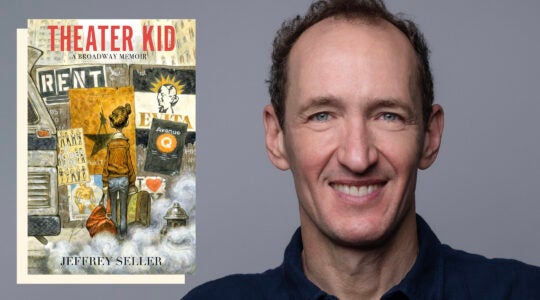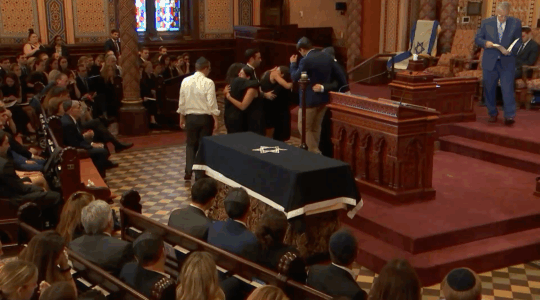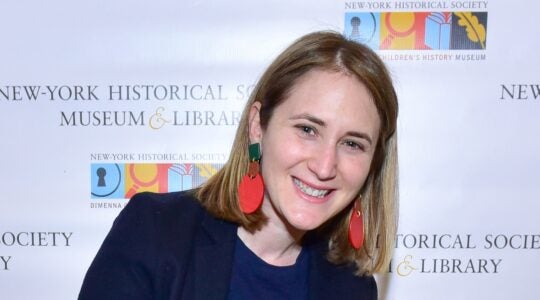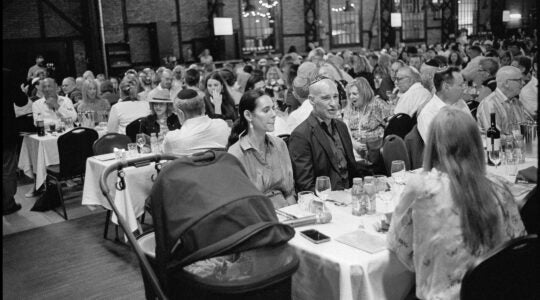Candlelighting, Readings:
Shabbat candles: 6:53 p.m.
Torah: Deut. 26:1-29:8
Haftarah: Isaiah 60:1-22
Havdalah: 7:51 p.m.
Jews love happy endings, even if we have to compose them ourselves.
It would be hard to find a more pessimistic section of the Torah than the tokhakha, the 100 curses poised to befall the Jews if they forsake the mitzvot. So it is precisely this section that scholars through the centuries have sought to mine for — you guessed it — blessings! Some settled for silver linings without overturning the curses; others reinterpreted to provide new meanings.
Rabbi Hayyim Yosef David Azoulay, known by the acronym “the Hida,” aimed the highest. He took the words: “Your ox will be slaughtered before your eyes, but you will not eat from it. Your donkey will be stolen right in front of you, but you will not be able to get it back. Your sheep will be given to your enemies, and no one will come to your aid” [Deuteronomy 28:31]. By reversing the order of the Hebrew words he produced the effect he was looking for: “No one will come to the aid of your enemies. Your sheep will be given back to you. Your donkey will not be stolen. You will eat from the ox that is slaughtered before you.” Blessing and curse, he seems to say, are a matter of perspective.
The very same technique was employed by the advocacy group Stand Up for Israel in a video (available on YouTube) titled “Israel is Just a Dream.” As the video opens, text scrolls down the screen and the narrator lists all the reasons why it is impossible for her to support Israel, adding, “And this is all true — unless you choose to reverse it.” Then the same words scroll up the screen and are read backwards to explain why we actually must support Israel. When I show that video to groups of young people, it is the springboard for a discussion of how it is the attitude we bring to circumstances, even more than the circumstances, that will determine whether we will experience bracha or klala (blessing or curse).
One person’s handicap is another’s opportunity. Chava Willig Levy, confined to a wheelchair since childhood due to polio, became a motivational speaker and advocate for under-served populations. Her recent memoir “Life Not With Standing,” chronicles the life of someone who wouldn’t give up. Lavi Greenspan, 42, blind for the last 16 years, has not stopped learning and teaching Torah and motivating audiences around the world. He says that being blind has given him the intense feeling that God is holding his hand. Alan Brown, a Ramaz graduate and my bar mitzvah student of decades ago, suffered a catastrophic accident on the beach that left him a quadriplegic at the age of 21. He established the Alan T. Brown Foundation, which helps those who suffer paralysis and spinal cord injury.
Rachel Frankel, mother of one of the three Israeli teens murdered this past summer, chose to look at evil and find the good of trusting in God, the unity of Israel, and gratitude to the Israeli Defense Forces. Many have observed that it was the tragic loss of the three innocents that led Israel to an awareness of the extent of the tunnel threat, thereby saving countless lives. Without justifying their deaths in the slightest, this might at least be a small consolation to families who already excel at wresting meaning from seemingly random tragedies.
The New Year’s adage, “May the old year conclude (tikhleh) with its curses; may the new year begin (tahel) with its blessings,” uses similar letters and sounds to convey the almost interchangeability of the two concepts.
This past summer, I was approached by someone who had a medical condition that he bore with courage and privacy and wanted to know how to apply the examples of the people I mentioned to his own life. We discussed raising public awareness of the condition that plagues him and raising funds so that others will have the support that he never had. And therein lies a secret in the conversion of curse to blessing: Even when we may not be able to surmount our own misfortune, we can still be the agents that turn someone else’s tragedy into blessing.
A year of trial is drawing to a close. Recent events have pulled aside veils that gave us an illusory sense of safety. Reality is going to be increasingly difficult to look at without the gift of the Hida and Chava Willig Levy, of Lavi Greenspan and Alan Brown and Rachel Frankel. More than ever we must develop the art of finding good in the bowels of evil, seeking happy endings even in the midst of the saddest stories. And more than ever we must make ourselves the happy endings that others seek.
Rabbi Moshe Rosenberg is rav of Congregation Etz Chaim of Kew Gardens Hills, Queens, and teaches at the SAR Academy, where he also integrates Judaism and technology.
The New York Jewish Week brings you the stories behind the headlines, keeping you connected to Jewish life in New York. Help sustain the reporting you trust by donating today.




